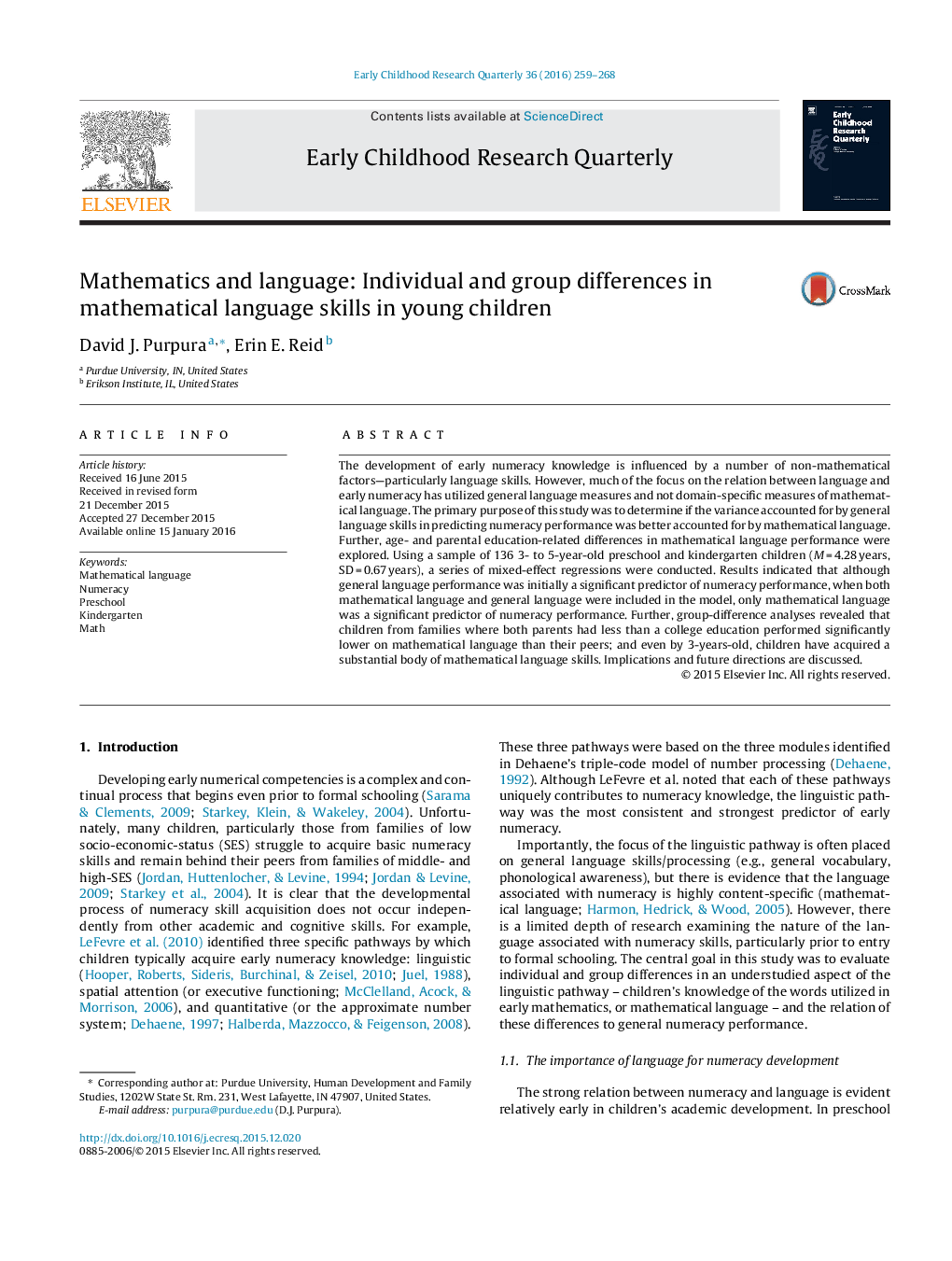| کد مقاله | کد نشریه | سال انتشار | مقاله انگلیسی | نسخه تمام متن |
|---|---|---|---|---|
| 353663 | 618936 | 2016 | 10 صفحه PDF | دانلود رایگان |
• Mathematical language is an understudied aspect of early numeracy development.
• Mathematical language accounts for significant variance in numeracy performance.
• Mathematical language is more proximal to numeracy skills than is general language.
• Parental education levels were related to children’s mathematical language.
• Development of mathematical language begins early—likely even before 3 years of age
The development of early numeracy knowledge is influenced by a number of non-mathematical factors—particularly language skills. However, much of the focus on the relation between language and early numeracy has utilized general language measures and not domain-specific measures of mathematical language. The primary purpose of this study was to determine if the variance accounted for by general language skills in predicting numeracy performance was better accounted for by mathematical language. Further, age- and parental education-related differences in mathematical language performance were explored. Using a sample of 136 3- to 5-year-old preschool and kindergarten children (M = 4.28 years, SD = 0.67 years), a series of mixed-effect regressions were conducted. Results indicated that although general language performance was initially a significant predictor of numeracy performance, when both mathematical language and general language were included in the model, only mathematical language was a significant predictor of numeracy performance. Further, group-difference analyses revealed that children from families where both parents had less than a college education performed significantly lower on mathematical language than their peers; and even by 3-years-old, children have acquired a substantial body of mathematical language skills. Implications and future directions are discussed.
Journal: Early Childhood Research Quarterly - Volume 36, 3rd Quarter 2016, Pages 259–268
